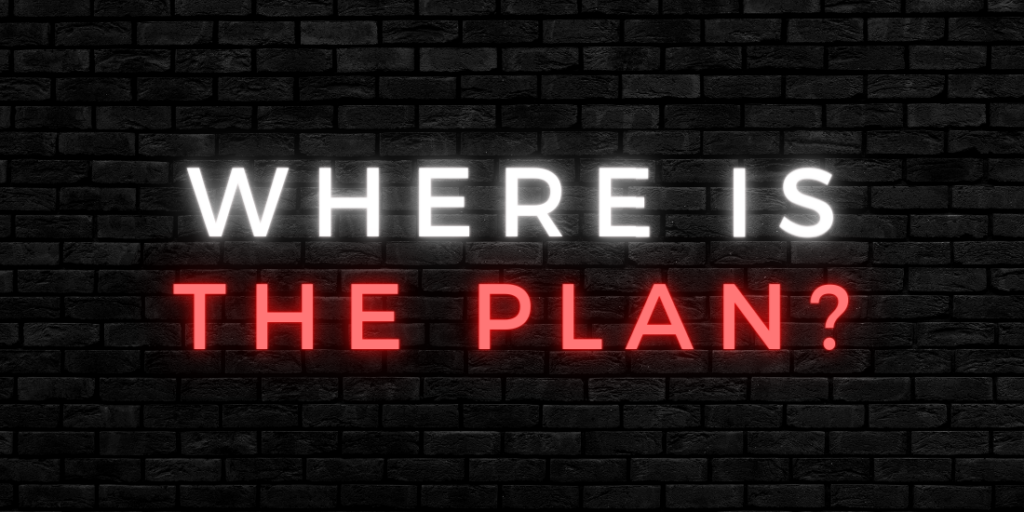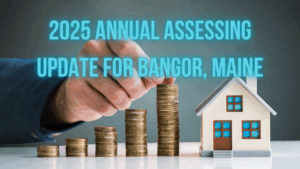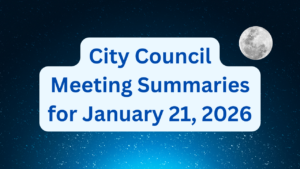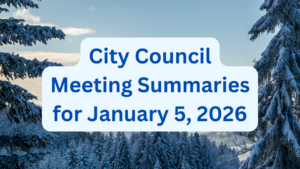
I spoke at the Bangor City Council meeting on Monday, November 14, 2022. I spoke during public comment on the growing humanitarian crisis of homelessness in Bangor, Maine. I talked about what I perceive as a lack of leadership by the Council to tackle this crisis. I shared my concern that the state’s implementation of “Built for Zero” is not going well.
First Impressions Matter
City officials have touted “Built for Zero” as THE plan for addressing the homelessness crisis in Bangor, Maine. Sparse details had been offered before I made comment to the Council. The local coordinator for Built for Zero came to speak with the Bangor Government Operations Committee on October 3, 2022. (Video link) The bulk of my public comments to City Council stem from that conversation.
The comments made by the local coordinator did not line up to the vision laid out by the national program. Nor did it compliment information previously provided by MaineHousing (responsible for implementing Built for Zero in Maine). This meeting generated far more questions than answers.
If “Built for Zero” is the plan… where’s the plan?
The Built for Zero methodology holds great promise for solving the homelessness crisis on a community-by-community basis. But implementation is key. Consistency is key. Built for Zero has been in the works since at MaineHousing since June of 2021. As of November 21, 2022 I found no comprehensive Built for Zero plan made available by MaineHousing for review. A project of this magnitude demands a written comprehensive plan… a blueprint… for all the players to follow. The closest MaineHousing has come to releasing a plan are “six month action cycles” which tackle a single task. I discovered this information in some MaineHousing board meeting packets, like this one from June 2022.
The City of Bangor has yet to allocate a single penny of the funding it received as a result of ARPA. Built for Zero has the power to bring all the providers in the homelessness sphere together and provide clear guidance to the City on how to best invest those SLFRF funds towards bringing 200+ Bangor residents out of the cold and into a home, while simultaneously preventing other Bangor residents from ending up outside in the first place.
I have seen little information from MaineHousing outside of media fluff pieces. They have not provided a comprehensive plan complete with goals, milestones, and progress tracking. Where is the plan? Let’s see that plan. Make it public.
$0 spent on the program being piloted. Make it make sense.
The biggest news they’ve provided is they’re piloting a coordinated entry portal. No further details provided. How is the coordinated entry portal being built? What software is being used? How do providers access it? When does piloting actually start? The Hub 7 coordinator said the Hub was starting their pilot program for coordinated entry on Oct 4, 2022. MaineHousing had allocated $10,000 for the coordinated entry portal. To date, they’ve spent $0. For 2023 they’ve budgeted $0. (See November 2022 board packet here.) What are they piloting then? A bunch of handwritten notebooks? Tell us, MaineHousing.
Please, let the public see the plan.
Has there has been a comprehensive written plan for implementing Built for Zero in Penobscot and Piscataquis counties all along? Perhaps someone forgot to post it on the MaineHousing website. Or include it in any of the MaineHousing monthly meeting packets. Or share it with the media during any number of the interviews they’ve given on the subject. Perhaps the local coordinator forgot to bring it with her when she met with Bangor city officials on October 3rd. MaineHousing can clear all of this up by showing everyone that comprehensive plan. Please, let the public see that plan.
This is the statement I spoke to the Bangor City Council on November 14, 2022:
Tonight, I am here as one of your constituents to say Bangor City Council continues to fail in addressing the growing humanitarian crisis of homelessness happening right here in our city.
This problem is not going to be solved any time soon because there is not enough action by the City Council. You hear this feedback at every single council meeting. I’m here to add my voice to that call for action.
In response to repeated concerns, last month this council wrote an Op Ed in the BDN titled, “Bangor is doing a lot to address homelessness”.
In this piece, when all the work done by city departments and outside organizations is filtered out… when we truly boil it down to what the Council itself has done, we’re left with only 4 things:
- First, the Council talked to 20 organizations about what THEY do. However, the only result of these conversations is the addition of a Homelessness page to the city website with video links and a very simple spreadsheet that attempts to summarize these non-uniform conversations. The spreadsheet comes with a disclaimer that the information is not comprehensive and directs people back to the Homelessness page for more information. Ironically, the Homelessness page comes with its own disclaimer telling anyone experiencing homelessness who went to the city’s page about homelessness resources not to use the homelessness page as a resource for homelessness. That’s an Abbott and Costello skit. Who’s on first?
- Next, the Council states they have been aggressively addressing the need for affordable housing based on the 2019 housing report. Aggressively is not the word I would use. The Council spent a total of 4 minutes in the February 14th City Council Workshop reviewing a handful of goals they selected from that 2019 report. The January goal setting minutes said there would be regular updates. No updates were shared. The closest Council came to reporting progress to the public was this 2 page accounting of all the statistics and projects from the past year, shared 8 months later. When you include important humanitarian crisis statistics on the same page as how many people attended a Waterfront concert… or that 30,000 rounds of golf were played, AGGRESSIVE is not the word that comes to mind.
- In regards to those goals, Council said they made zoning changes in the op-ed. Yes, City Council made some zoning changes. When the Council opened the door to boarding houses, permanent supported housing, and tiny home construction, that was a step in the right direction. Where I take exception is the Council using one tiny home development project in particular as an example of affordable housing coming to Bangor. The developer of that project stated they plan to charge $1500 a month in rent per unit. Someone would have to make a gross salary of $80,000 a year just to afford rent on a TINY home. The median income for a renter household in Bangor is just over $30,000. You can’t celebrate this as an example of progress on the goal of affordable housing when clearly it’s not.
- Finally, City Council talked to a company that builds pallet villages. I watched that meeting. City council spent more time pleading with a business to keep their drunk customers in line than it actually did talking to the gentleman from Pallet. When it was finally the time to talk to that representative, he had to sit there staring at the camera while Council members and city officials went back and forth about other operational issues. Real leadership doesn’t invite people to provide valuable information and then waste their time as the Council pigeon walks from topic to topic.
So those are the 4 things in that op-ed piece City Council has specifically done. That’s it. No meaningful accomplishments towards solving the homelessness crisis. The glaring hole in that op-ed: where’s your PLAN to solve homelessness? Where’s your leadership on that? When I, and other Bangor residents, complain the City Council is not acting… and not leading, this is why…
So how do we dig ourselves out of this homelessness crisis? I keep hearing the City Council mention “Built for Zero”. One of the impressions I have is City Council thinks “Built for Zero” is some group the state hired to swoop in and single handedly fix all of the city’s housing woes. I also get the impression City Council thought it was already up and running and working. OR they’re holding their breath waiting for the magic to happen.
Here’s why I say that:
During the October 3rd Government Operations Committee meeting, Council members met with the Built for Zero Coordinator for Hub 7, which is our local hub. I encourage the public at large to watch that video. The conversation begins at the 23 minute mark.
Members didn’t press for clarification when inaccurate or incomplete answers were given. I am left to conclude you don’t know as much as you should know about the methodology you’ve been touting to the citizens of Bangor for a year. Here are some examples.
When the coordinator told the committee that prevention and diversion was not part of her job, despite being part of the Built for Zero methodology according to the national website, that should have worried you.
When you were told… people who are couch-surfing aren’t “literally homeless per the HUD definition”, and it would be tricky to incorporate data on these individuals, I am led to believe Hub 7 has handcuffed itself to Maine’s well established HMIS software… which is designed to collect only HUD requested data. Hub 7 should be importing HMIS data into a new expanded system which is designed to add the relevant and important information the methodology needs to achieve success.
Speaking of the state’s HMIS system… the entire state, including providers in Hub 7, have been using it for years. It already has a coordinated entry protocol, complete with required training… So when you were told Hub 7 was going to start piloting a “coordinated entry program”, are we starting from scratch here? If you don’t know the answer, that should worry you.
Per the coordinator, both Penobscot and Piscataquis Counties are in her purview. When you didn’t hear any mention… of how other municipalities, organizations, or agencies outside of Bangor are participating in Hub 7, that should worry you.
You asked the coordinator what communication strategies Hub 7 uses to connect individuals and organizations. When the answer amounted to having everyone on speed dial or an email address book, that should worry you.
When you had to ask when you could get updates, you SHOULD have been told about how a nimble command center is a key part of the Built for Zero methodology… You SHOULD have been told… about the municipal leader role… on that team. That’s YOUR seat at the table! Not only would you see what’s happening in real time, you are part of the team who works together to meet the goal of Built for Zero. When that wasn’t shared, that should have worried you.
Finally, when you asked “What does Functional Zero look like?”, which, by the way, is the entire goal of Built for Zero… What the coordinator SHOULD have told you is Functional Zero means that the number of people experiencing homelessness at any time does not exceed the community’s proven record of housing at least that many people in a month. It’s a straightforward concept. The goal is to reach a level where you don’t have more people without housing than you have the capacity to house. However, you were told “I’m not supposed to talk too much about Built for Zero”. WHAT? Is this Fight Club? First rule of Built for Zero is don’t talk about Built for Zero? That makes ZERO sense, and that absolutely should worry you.
I tell you all of this… not because this methodology is a bad idea, but because it is an amazing idea… and it appears to be the tool that is going to enable this community to reach Functional Zero. I want this to succeed… but based on what we’ve learned, Built for Zero: Maine is in bad shape.
I started looking at the Built for Zero methodology as a skeptic… and came out on the other side more hopeful than ever that homelessness can be solved here… using this way of thinking.
Built for Zero has been successful in other communities because everyone involved is on the same page about what it is, what it can do, and everyone took their seat at the table who was supposed to.
That includes the City of Bangor. City Council needs to do more than cross its fingers and hope Built for Zero is eventually implemented. City Council needs to act, and it starts by making sure this City takes its seat at that table.
We’re a year and half past… when Maine joined Built for Zero. By now, successful communities would have a WRITTEN plan like this… with milestones and next steps available for public view. They’re tracking progress as they go using a documented plan. Where’s our documented plan? Where is the timeline for getting the pieces of this methodology in place? Why is there no public transparency for Hub 7 like there is with successful Built For Zero communities? These are HUGE red flags. Why weren’t you asking these questions?
I find it hard to believe… that the national Built for Zero team offered nothing beyond a press release. I am willing to bet that all of the planning resources described on their website were offered… but it appears they’re not being utilized. I don’t know if this is a failure at the state level or at the hub level, but it’s incumbent upon this Council to find out… and push them to get back on track. They need to communicate exactly what is happening in this Hub to you, so you can communicate to the citizens of Bangor… desperate for answers.
Other communities have reporting that shows you their progress on reaching Functional Zero. Not only does it show the raw numbers and progress, it gives important context. For instance, when you make a key zoning change, you will see the impact it had. When you form a partnership with a developer, you can see how it moved the needle.
When the city takes an action, such as closing an encampment, you can see the effect on the goal.
Better yet, it helps you plan that closure in a safe and humane way because you know ahead of time exactly what resources are needed and what is available …in REAL-TIME… so you’re not making a bad situation worse.
Imagine… being able to turn statements like… “City Council is not doing enough” into “Look how far we’ve come together”.
Armed with complete data… you can make targeted investments… like allocating ARPA funds… towards solving this crisis with surgical precision. You will be able to ACT decisively and with clarity.
I’ve only scratched the surface with you tonight on what is possible.
Please don’t sit on your hands. Act. Get the state coordinator and the hub coordinator here… together. Talk to them. Demand answers. Demand a plan. Demand accountability. Demand your seat at the table. And do it quickly. Because frankly, Bangor is going to suffocate… from holding its breath… waiting on you to act.







